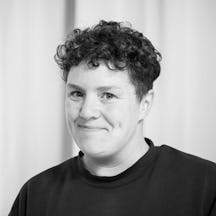Ten years ago, Jess Thom made a conscious choice to access the creativity Tourette’s syndrome gave her. That decision changed her life. Here she argues powerfully for an open-minded society that accepts and reflects all our minds and bodies.
Rejecting shame and a decade of change
Words by Jess Thomaverage reading time 6 minutes
- Article
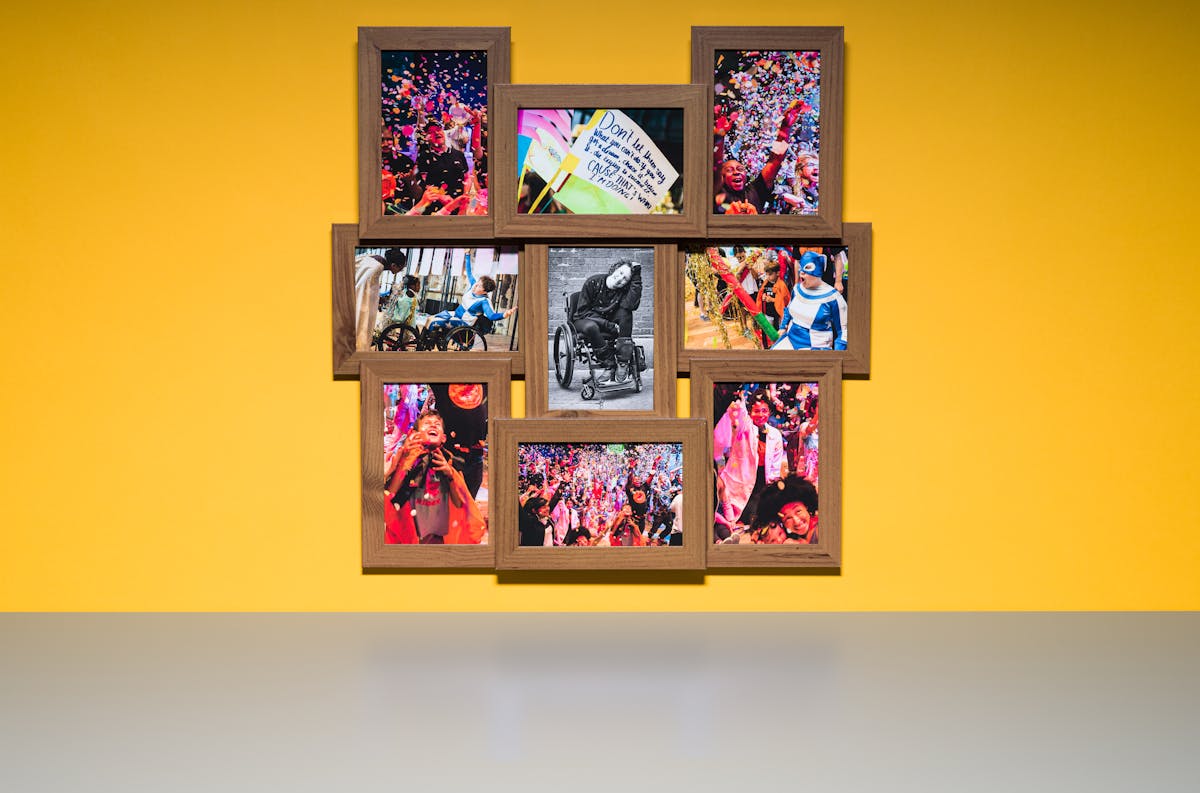
This year is the tenth anniversary of a hugely significant point in my life, the moment when everything changed and I became a radically different person. I’m not sure exactly when in it happened, but by the time the clock struck midnight on 31 December 2009, an incredible transformation was well underway.
I spent that New Year’s Day on my own, so no one else would have noticed this monumental shift. They certainly wouldn’t have seen a physical change: my tics, the involuntary movements and noises I make, were as forceful and frequent as ever. I know my verbal tics were funny because I was writing them down – allowing me to do something I’d never done before: think creatively about life with Tourette’s.
The journey to that moment hadn’t been easy. I’d spent years trying to ignore my tics and the increasing impact they were having on my life. My independence, wellbeing and self-esteem had all suffered as I tried in vain to make myself change. I got angry with myself for “not trying hard enough” and for standing out when I was desperate to fit in.
The solution, as it turned out, was much simpler – it wasn’t my body or mind that needed to change; it was the way I thought about them.
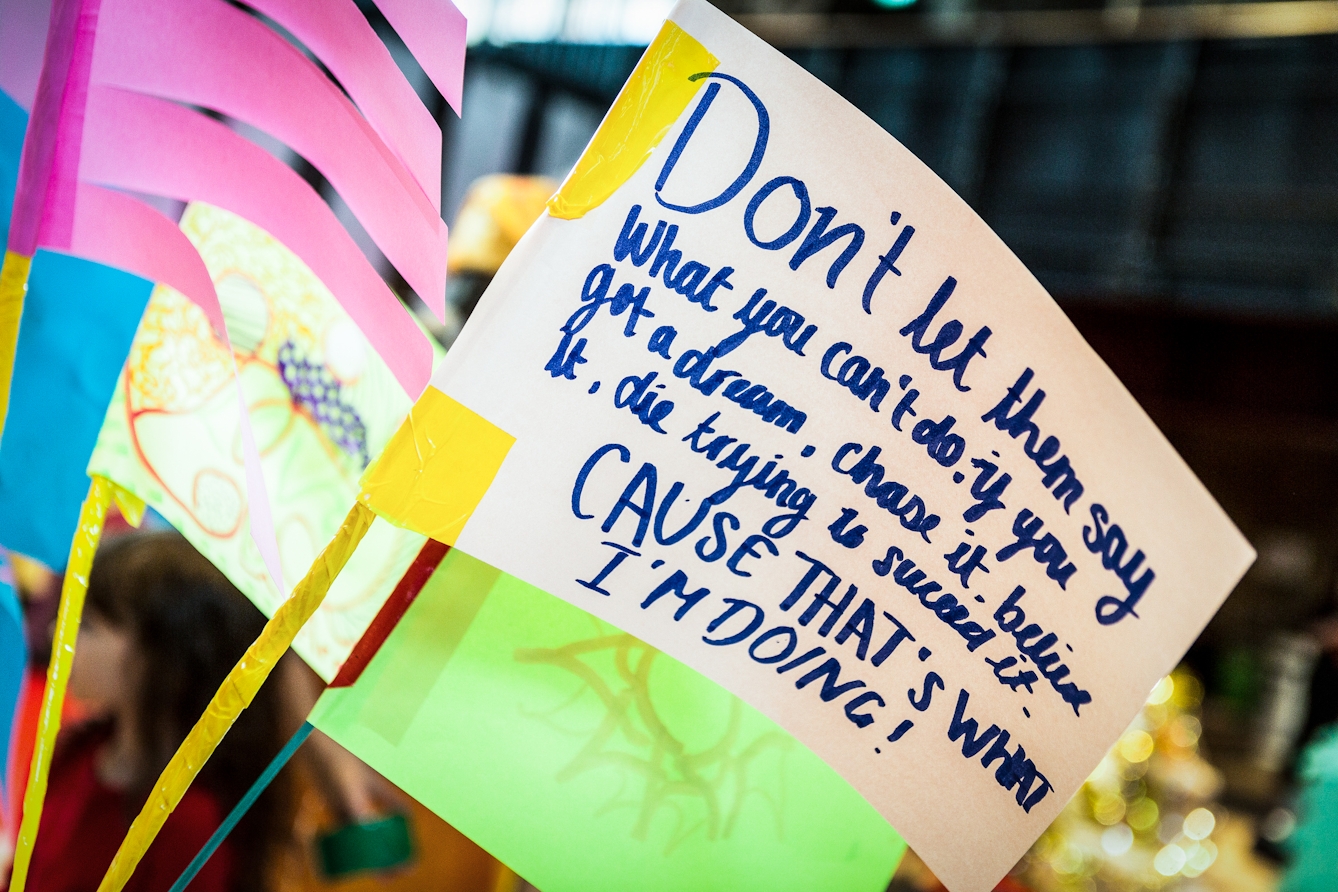
Brewing in Battersea, Touretteshero event.
It was a conversation with my friend Matthew that catalysed this internal transformation. He described Tourette’s as a “crazy language-generating machine” and told me that not doing something creative with it was wasteful. We’d talked about Tourette’s many times before, but this sentence captured my imagination in a new way. One fragment of conversation fundamentally transformed how I understand myself, my body, and my experiences. Ultimately it led to the creation of Touretteshero in March 2010.
Through my work with Touretteshero I’ve come to appreciate that the patterns of shame and fear that prevented me engaging positively with Tourette’s for so long are deeply ingrained in our society – it’s not just me that needs to think differently about difference – we all do.
The dominance of ableism
By the time I was ten I’d internalised the array of ableist messages that surrounded me. I’d only seen disability represented as tragic or threatening, from the collection box outside our local shop depicting an angelic, calliper-wearing girl, to the disabled and disfigured Bond villains on my TV. It’s taken me decades to consciously unpick these ableist attitudes, and that’s because, in a society that places normative bodies and minds above all others, they have total dominance.
Online dictionaries define supremacy as “the state or condition of being superior to all others in authority, power, or status”. When disabled people are systematically excluded and denied power, it is entirely appropriate to describe that system as a normative supremacy.
The exclusion of disabled people is presented as the ‘natural order’, but it’s not; it’s a choice we are all actively making.
Evidence for this is borne out in statistic after statistic. I work in the arts, and while 22 per cent of the population identify as disabled, we make up just 4 per cent of the arts workforce, as Arts Council England has reported. I’m not aware of a single artistic director of a mainstream venue that identifies as disabled.
Living in a normative supremacy has a very real cost for disabled people, socially, emotionally, physically and financially. Hate crimes against disabled people have increased by 50 per cent in the last year. Tory politicians campaign for disabled people to be paid less than minimum wage, while living with an impairment costs on average an extra £6,840 each year.
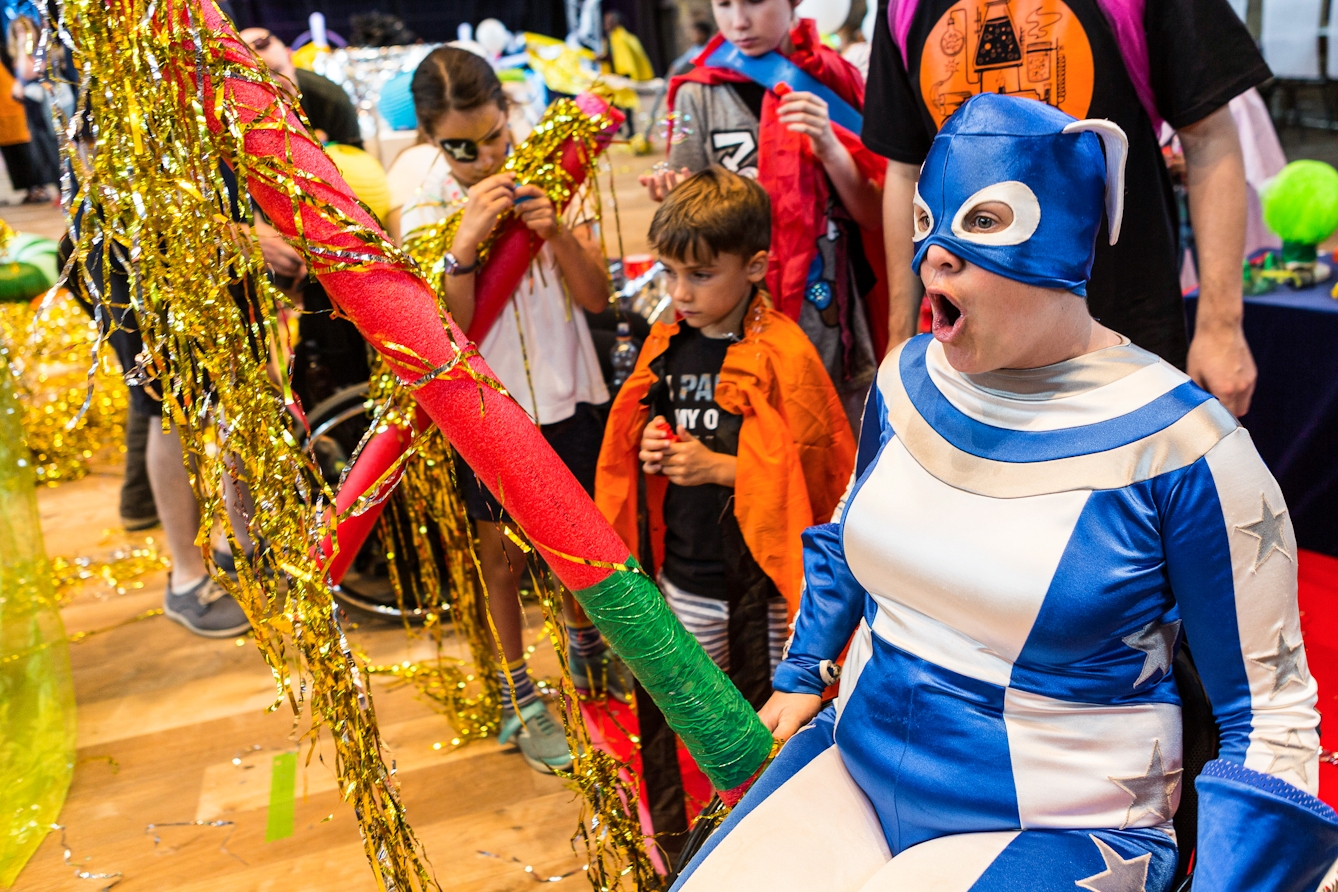
Brewing in Battersea, Touretteshero event.
It’s the dominance of normative bodies and minds that mean I can only access 18 per cent of the London Underground or that 80 per cent of eligible learning-disabled women have not received a smear test. It’s in this climate of hostility that a stranger recently felt entitled to grab my wheelchair and whisper in my ear “I’ve seen you standing” – the implicit threat being that I was a fraud ready to be unmasked.
The exclusion of disabled people is presented as the ‘natural order’, but it’s not; it’s a choice we are all actively making. If we tolerate systemic oppression and don’t work to challenge it, we are all complicit in the harm that it causes.
The conversation that changed my thinking could easily not have happened. It showed me that what we say to each other matters. Our attention, energy and kindness have power. At a time when almost two-thirds of the general population say they feel uncomfortable talking to a disabled person, it’s essential to use open, compassionate conversations as a way to fight fear and prevent it from cluttering our communities.
Taking an inclusive approach doesn’t need to be complicated; it’s the difference between assuming everyone does everything the same way and understanding that we all do things differently. Don’t leave access to others. Welcoming difference in everything we do creates positive social change and dismantles disabling barriers.
Being able to give and receive solidarity is one of the things that makes me feel most hopeful for our world. Amplifying the voices and perspectives of people at the intersections of oppression has the power to create new connections, increase understanding and move us towards a world built on social justice.
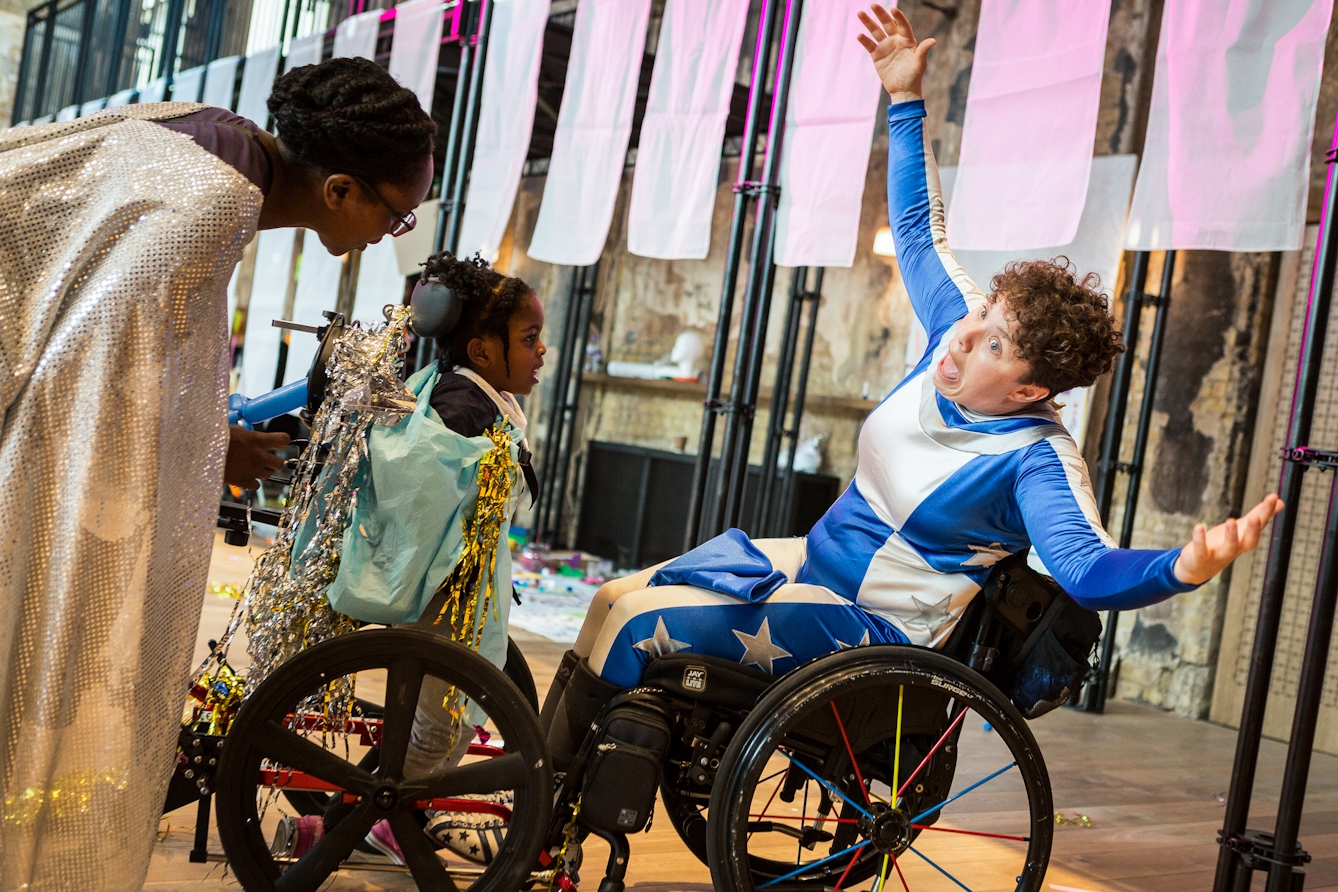
Brewing in Battersea, Touretteshero event.
We can all create change
It was seeing incredible work by disabled artists like Matt Fraser, Liz Carr and Francesca Martinez that rescued me from my own internalised ableism. Seeing my experiences reflected on stage helped me feel confident that being an artist was a possibility for me. After one particularly distressing experience at the theatre, I decided to make a show myself so I could occupy the one seat in the house I knew I wouldn’t be asked to leave.
The art, music and activism that’s emerged in response to normative supremacy is incredibly rich. You can explore disability culture through platforms like Disability Arts Online and the Disability News Service, and I strongly recommend checking out Access Is Love, writing by Mia Mingus, Imani Barbarin and Matilda Ibini and work by artists like BLINK Dance Theatre, Creative Electric, Tarik Elmoutawakil and Heart N Soul.
Ten years ago I started what felt like a small personal project to recognise my tics and the spontaneous creativity they gave me access to. Little did I know how big this would become, or that it would lead to a book, events, stage shows, TV programmes and countless other opportunities to change the world, one tic at a time.
In the last decade I’ve learned that if something isn’t working, I have the capacity to change it. And that’s not because I have any special qualities or superpowers, but because we are all capable of creating change. Together we can shape a world that reflects and respects the diversity of all our bodies and minds.
About the author
Jess Thom
Artist, activist and part-time superhero, Jess Thom co-founded Touretteshero in 2010 as a creative response to her experience of living with Tourette’s syndrome. She has written in the mainstream and disability press, including the Guardian, the Observer and Disability Now, and has been a Wellcome Trust Engagement Fellow.
